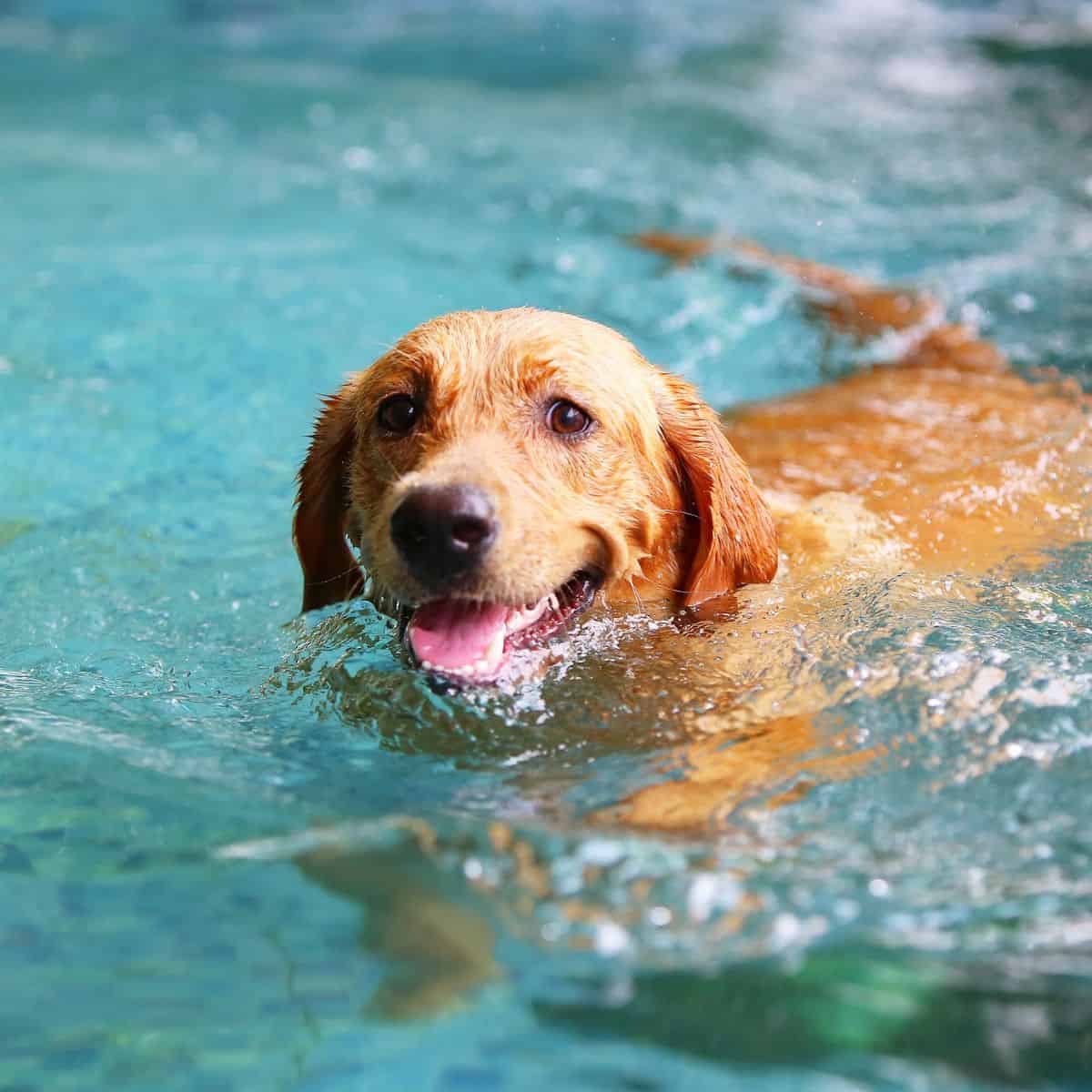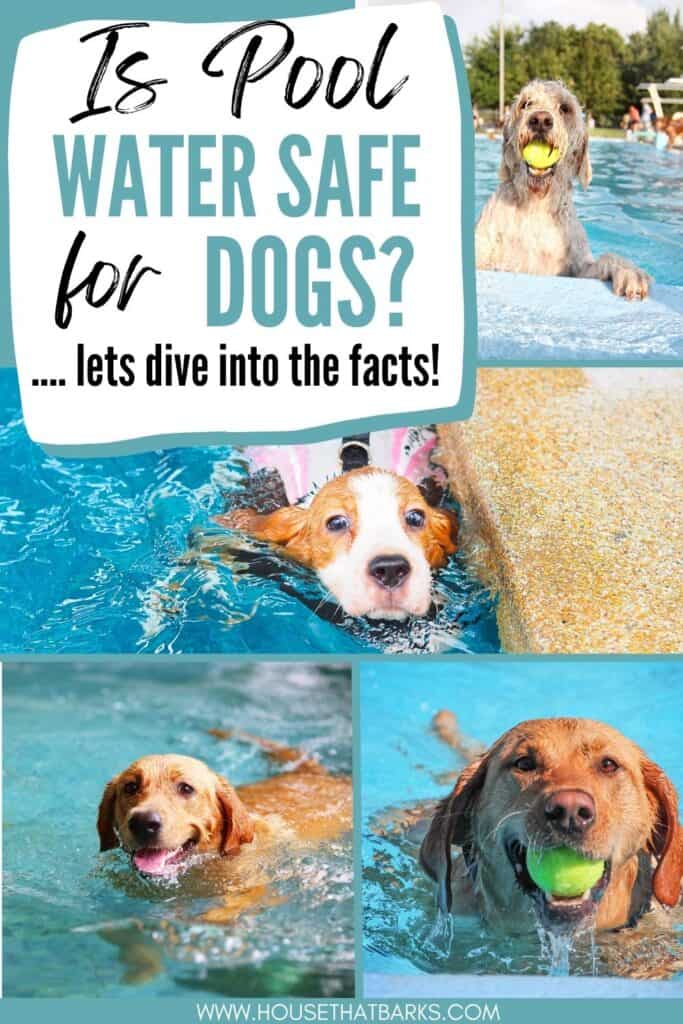Making a splash: Examining the Risks and Benefits if Pool Water Safe for Dogs?
Many dog owners enjoy spending time by the pool, especially during hot summer months.
As dog owners, you know the importance of keeping your furry friend safe. It's natural to wonder whether pool water is safe for your furry friend.
After all, swimming is great exercise for dogs, and it's a fun activity for both dogs and owners. But is pool water safe for your dog?
While most dogs love water and swimming, it's important to understand the potential risks and takes necessary precautions.
- For example, the chemicals used to keep the pool water clean can be harmful to dogs.
- Plus, if you dog drinks too much pool water, it can lead to electrolyte imbalances and digestive issues.
In this blog post, let's explore the safety of pool water for dogs and provide tips for keeping your furry friend safe and healthy.

Risks of Exposure to Chlorine
Chlorine is commonly used to treat pool water, making it safe for humans to swim in. However, dogs are more sensitive to chlorine and an experience adverse health effects from chlorine exposure.
- These health risks include skin irritation, eye irritation, respiratory problems and gastrointestinal distress.
- In some cases, excessive exposure to chlorine can even lead to more serious health issues such as chemical burns or poisonings.
It's important to take precautions to ensure your dog's safety when swimming in chlorinated pool water, such as showering them off after swimming and monitoring their behavior for any signs of discomfort or illness.
Disclosure: Some of the links in this article are affiliate links (Amazon Associate or other programs we take part in). As an Amazon Associate, I earn a small commission from qualifying purchases.
Potential Health Hazards for Dogs
While many dogs love to swim, along with chlorine another health hazard is the presence of bromine in the water.
Although these chemicals are necessary for maintaining a clean and safe pool for humans, they can be harmful to dogs if ingested or absorbed through their skin.
- Dog's who swallow large amounts of pool water may be at risk of developing stomach upset or even greater intoxication, which can be life-threatening if not treated promptly.
Importance of Proper pH Levels
A pools pH measures the acidity or alkalinity of water, and it's important to keep the levels within a specific range.
- If the pH is too low, the water becomes acidic and can cause skin and eye irritation for both dogs and humans.
- If the pH is too high, the water becomes alkaline and can cause scaling of the pool walls and equipment, making it difficult to clean.
To maintain proper pH levels, it's important to regularly test the water and make any adjustments.
Maintaining proper pH levels not only ensures a safe swimming environment for you and and your dog, but also helps to prolong the life of your pool equipment.
Avoiding Excessive Pool Time
As dog owners, it's natural to want to provide our furry companions with a fun and refreshing space to cool off during hot summer days.
While swimming in a pool can be a great way to help your dog beat the heat, you'll want to pay attention and take proper precautions.
- One of these precautions is avoiding excessive pool time.
Prolonged exposure to pool water can lead to a variety of health issues. This includes skin irritation, ear infections, and even ingestion of chlorine in the water.
- It's recommended to limit pool time to 30 minutes at a time and to rinse your dog throughly with fresh water after swimming.
Signs of Distress in the Pool
Dog's can experience a variety of physical distress when swimming in a pool, such as exhaustion, dehydration, and sunburn.
Other signs of distress include:
- Disorientation
- Difficulty swimming
- Excessive panting
- Lethargy
If you observe any of these symptoms, remove your dog from the pool and provide them with fresh water and rest.
If symptoms persist, seek veterinary care immediately.
Proper Pool Maintenance Practices
Proper pool maintenance practices are essential for ensuring that your pool water safe for dogs.
It's crucial to keep your water clean and free of harmful chemicals.
- Regularly testing the water's pH levels, alkalinity, and chlorine levels is important in pool maintenance.
- In addition, routine cleaning and maintenance of your pool's filter, skimmer, and pump system are key to preventing the buildup in bacteria and algae.
By implementing regular maintenance you can provide your pup with an enjoyable swimming experience.
Alternates to Swimming for your Dog
If you're concerned about the safety of your dog around pool water, there are several alternatives to swimming that can provide fun and exercise.
- One option is to take your dog on a walk or jog. This is a great way to bond with your dog and get some exercise at the same time.
- Another alternative is to play fetch or frisbee in a grassy area. This can provide your dog with a great workout and keep them entertained for hours.
- Plus dogs love playing tug-of-war or participating in agility exercises. These can help build you dog's strength, endurance, and coordination.
When considering alternatives to swimming, choose activities that are appropriate for your dog's age, health and energy levels.
When to Consult a Veterinarian after Swimming
When it comes to keeping your furry friend safe around a pool, you may need to schedule a visit with your veterinarian.
Veterinarians can provide expert advice on potential health hazards that your dog may face while in or around a pool.
For example, dog's with certain medical conditions, such as heart disease or respiratory problems, may be at a higher risk for complications related to swimming.
- Certain breeds, like bulldogs or pugs, may be more susceptible to heat stroke or other heart-related illnesses.
By consulting with a veterinarian, you can gain valuable insights into the unique health needs and take proactive steps to ensure your dog's safety around the pool.
Final Thoughts on Pool Safety for your Dog
While pool water may be safe for your dog to swim in, it's important to take certain precautions for their safety.
Monitoring your dog's behavior, providing ample access to fresh clean drinking water, and keeping up with regular grooming can help mitigate any potential risks associated with swimming in pools.






Leave a Reply